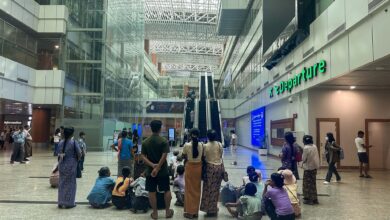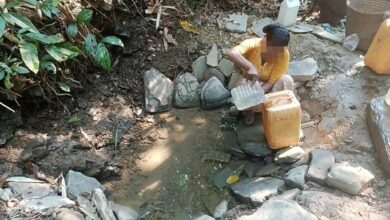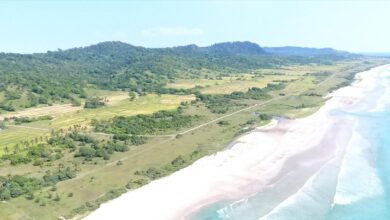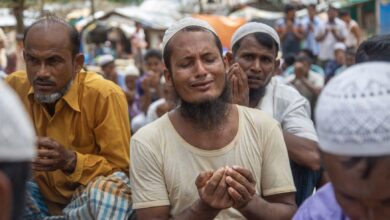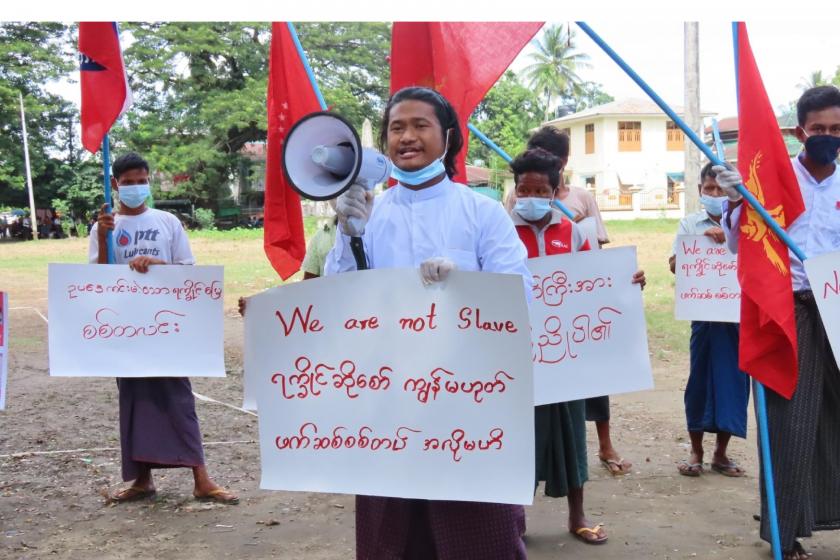
Oo Hla Maung, 24, was taken from his home in Let Kar village 26 months ago on suspicion of having links to the Arakan Army (AA). He has been detained in Sittwe Prison ever since.
His 45-year-old mother, San Tha Nu, has gone into debt travelling back and forth to his hearings and sending food to him.
“Before the Covid-19 pandemic, he had four hearings a month,” she said. “I went to every hearing so I could meet him. I needed money to get there, and there wasn’t enough food in the prison, so I needed money to provide food for him. I sold everything. Now I have to borrow money to get what my son needs.”
Her son is among hundreds who were detained for supposed links to the AA as the armed group fought Myanmar’s military between the start of 2019 and November 2020. As of March 2020, 362 people had been arrested on those grounds, according to the Sittwe-based Thazin Legal Institute.
Many are still awaiting verdicts, their cases put on hold as hearings are halted amid Covid-19 restrictions. Their families, supported by activists, have urged authorities to resume their trials as soon as possible, and say they should be released anyway because they are innocent.
“I can accept that the courts were closed for health reasons during the Covid-19 pandemic,” said Myo Myat Hein, the Thazin Legal Institute’s director. “But in some cases, although hearings are over, the verdicts for the cases have not been delivered.”
Village burned
On the morning of April 10, 2019, fighting broke out between the Myanmar military and the AA near the Let Kar Bridge on the Yangon-Sittwe highway, close to Let Kar village. The army later arrested 27 people, including Oo Hla Maung.
Three of them died during interrogations. Two minors were released. The remaining 22 were sent to Sittwe Prison and are still there now.
After the arrest, Let Kar’s residents fled and took refuge in the nearby villages of Tain Nyo and Pi Pinyin. At noon on May 16, Myanmar military soldiers were seen entering Let Kar. A fire broke out in the village that night, destroying 193 houses and a school.
The military blamed the fire on the AA, which denied the claim.
A little over a month after the coup, the military junta removed the AA from its list of terrorist groups. It was hoped that this change would pave the way for the release of those arrested on suspicion of being associated with the AA.
Several detainees, including the brother and sister-in-law of the AA’s commander-in-chief, Twan Mrat Naing, were released.
But many others arrested on terrorism charges remain behind bars, denied both bail and a timely resolution to their trials.
In an interview last month with the Arrakkha news outlet, Twan Mrat Naing said the AA and the military had not struck a formal agreement regarding prisoners.
“They released some of our people and we released some of theirs,” he said. “In the meantime, we have been talking informally online, and gained a mutual understanding that if those who are detained without a strong legal reason are released during the trust-building period, the prospect for peace will be good.
“That’s why we released the captives. But some of our comrades and some of our people have been detained without any strong evidence, yet they have not been released.”
He added: “We later heard that even after our group was removed from their list of terrorist groups, they ordered their officials to continue charging our troops and Rakhine people under the anti-terrorism act.”
There are 56 detainees charged under the Counter Terrorism Law in Mrauk-U Prison; 60 in Sittwe Prison; 16 in Kyaukphyu Prison; and a handful in Thandwe and Buthidaung prisons, said Myat Tun, director of the Arakan Human Rights Defenders and Promoters Association.
“These are seen as human rights violations because if there is no evidence, these people must be released. In fact, if [the AA] was removed from the list of terrorist groups, those charged with terrorism must be released anyway,” he said.
Government offices were closed from July 17 until the end of August because of the pandemic, meaning hearings were postponed.
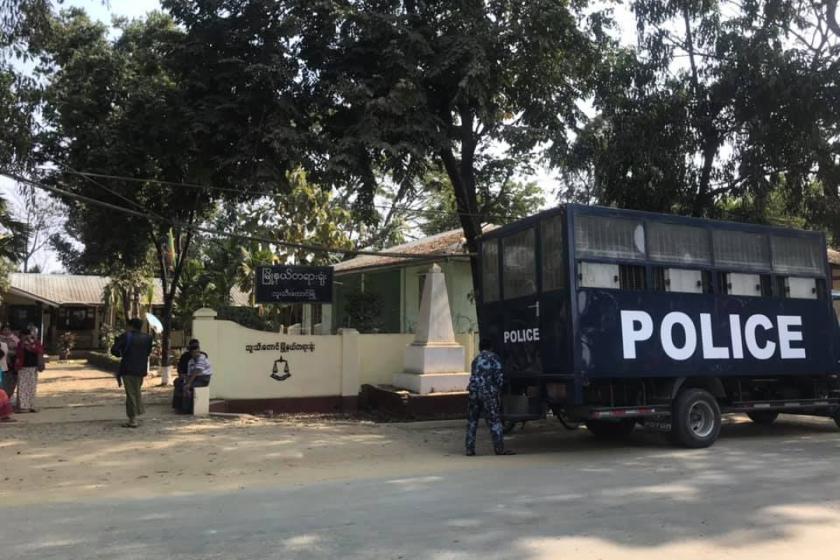
Delayed verdicts
Four members of the Rakhine State Students’ Union have now been detained for 10 months for staging an anti-war protest in Sittwe.
Kyaw Naing Htay, Oo Than Naing, Myat Soe Win and Kaung Htun held a march in October 2020 where they shouted slogans including: “We don’t want a fascist army”, “We don’t want a colonial government”, and “Burmese government: get out!”
They were charged under Section 505b of the penal code and section 29 of the Natural Disaster Management Law.
They are still awaiting a verdict. On July 16 the students staged a protest at their hearing to demand a faster resolution to their trial. “Deliver the verdict immediately!” they chanted. “Release innocent Rakhine people immediately!”
Myat Tun said family members have been unable to visit detainees in prison. “There are also problems related to getting food,” he said.
On June 5, three months after the AA was removed from the list of terrorist groups, Aung Win Naing, the chairman of the Moe Charity School in Taungup, was arrested by the junta’s army and charged under the Unlawful Associations Act. He has not yet had a hearing because of Covid-19 restrictions, even though hearings can still be conducted online.
Officials from the Rakhine State High Court could not be reached for comment.
The Rakhine State military council has said that 21 cases related to the Counter Terrorism Act have been dropped since the AA was removed from the terrorist list.
San Tha Nu is still waiting for a similar outcome for her son. “He has been in prison for more than two years without any evidence,” she said. “I cannot think of any reason why he has not been released yet.”
